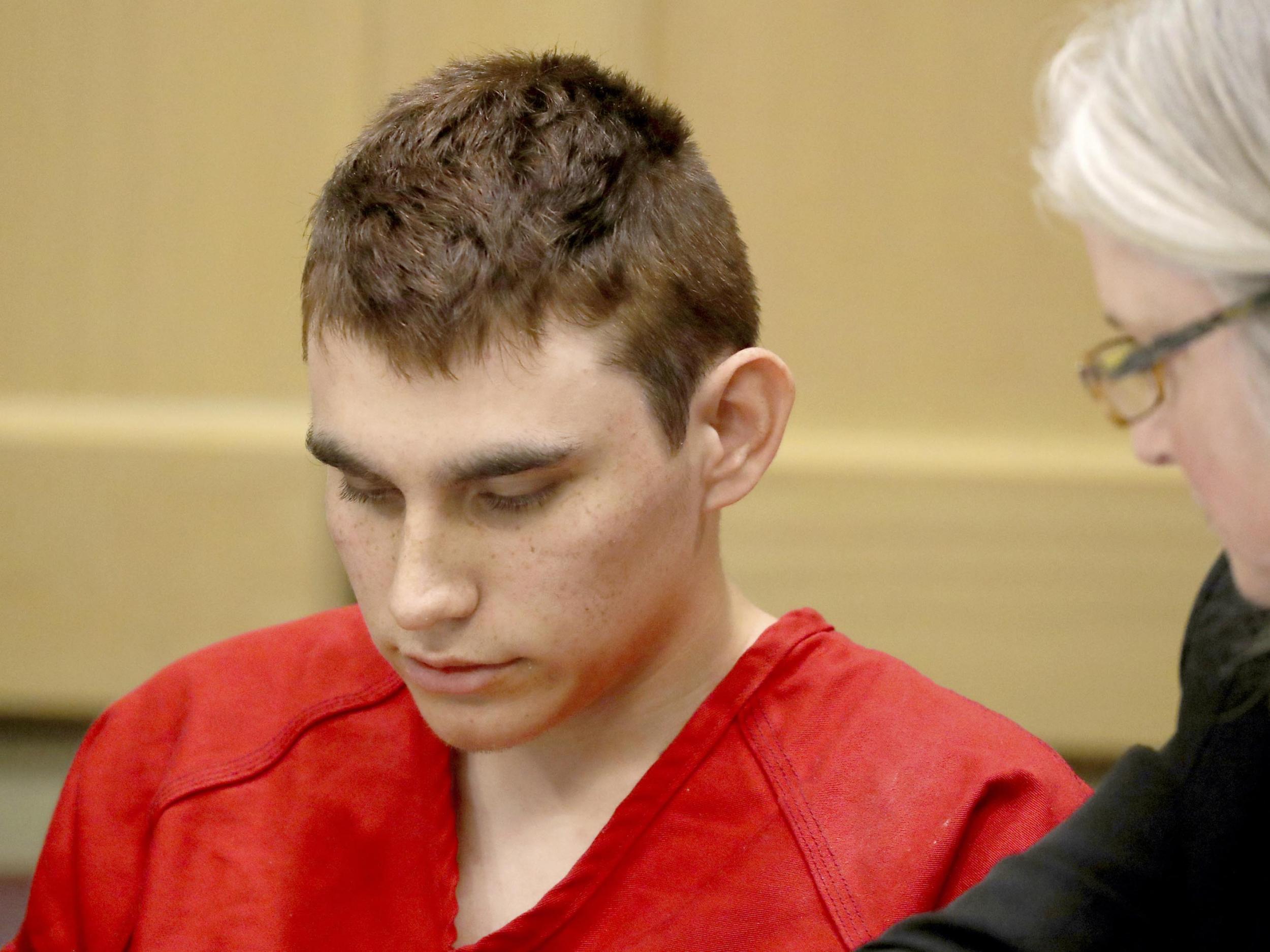Florida school shooting: Death penalty sought for Nikolas Cruz who is accused of murdering 17 students and staff
The prosecution also sought to make it harder for the defence to introduce mental health evidence

Your support helps us to tell the story
From reproductive rights to climate change to Big Tech, The Independent is on the ground when the story is developing. Whether it's investigating the financials of Elon Musk's pro-Trump PAC or producing our latest documentary, 'The A Word', which shines a light on the American women fighting for reproductive rights, we know how important it is to parse out the facts from the messaging.
At such a critical moment in US history, we need reporters on the ground. Your donation allows us to keep sending journalists to speak to both sides of the story.
The Independent is trusted by Americans across the entire political spectrum. And unlike many other quality news outlets, we choose not to lock Americans out of our reporting and analysis with paywalls. We believe quality journalism should be available to everyone, paid for by those who can afford it.
Your support makes all the difference.Prosecutors are planning on seeking the death penalty for the man accused of killing 17 people at Marjory Stoneman Douglas High School last month, according to court filings.
Nikolas Cruz, who was arrested after the shooting in Parkland, Florida has been charged with 17 counts of premeditated murder in the first degree, and 17 counts of attempted murder in the first degree.
Prosecutors in the case listed several aggravating factors that they say contributed to the decision to seek the death penalty, including that Mr Cruz “knowingly created a great risk of death to many persons”. The filling continues to say his crimes were “especially heinous, atrocious or cruel”, and “committed in a cold, calculated, and premeditated manner”.
The filing follows after Mr Cruz’s attorneys signalled that their client was willing to plead guilty to avoid the death penalty.
Prosecutor also noted that they would like restrictions if the defence decides to try and introduce proof that their client mentally ill or suffering from some sort of mental condition.
That includes a deadline for filings like those, which could come into play since it is widely reported that Mr Cruz has battled with mental illness and depression in the past, especially following the November death of his adoptive mother.
Mr Cruz has confessed to authorities that he was the gunman who opened, according to a probable cause affidavit that was released soon after his arrest.
The defendant was arrested shortly after the shooting at the high school, which is the worst high school shooting in US history. He had exited the school he assaulted alongside students, and had wandered away from the scene before getting picked up by a police officer who saw him in a residential neighbourhood.
The shooting has sparked a fierce national debate over gun rights, with many of the student survivors vowing to push for gun control regulations so that the shooting they lived through might be the last.
Join our commenting forum
Join thought-provoking conversations, follow other Independent readers and see their replies
Comments